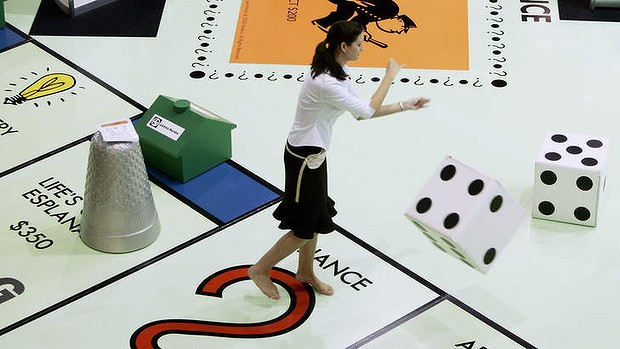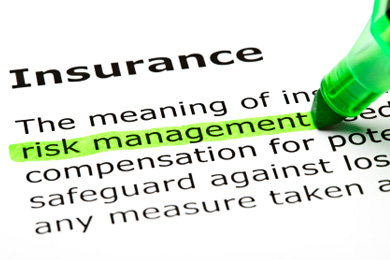The post A fundamental financial fact – time is money appeared first on .
]]>If there is one concept of finance and investing which is at the same time the most important and the least understood, it would have to be the time value of money. It’s the fundamental building block that the entire field of finance is built upon. And yet, many people lack a solid understanding of how it works.
Time value of money is the economic principal that a dollar received today has greater value than a dollar received in the future. If you were given the choice between receiving $100 today or $100 in 10 years, which option would you take? Clearly the first option is more valuable because of:
Risk – There is no risk of getting money back that you have today.
Purchasing Power – Because of inflation, $100 can buy more Mars bars today than it will in 10 years; and
Opportunity Cost – a dollar received today can be invested now and earn interest. However, a dollar received in the future cannot begin earning interest until it is received. This lost opportunity to earn interest is the opportunity cost.
All time value of money problems are solved using two fundamental calculations: compounding and discounting.
Compounding is the process of determining the future value of an investment made today and/or a series of regular payments.
Most people understand the concept of compound growth. If you invest $100 today and earn 10% interest for two years, your initial investment will grow to $121 at the end of year 2. The initial $100 compounds because it earns interest on the principal invested, plus it also earns interest on the interest.
Discounting is the process of working out the value in today’s dollars of money to be received in the future, as a lump sum and/or as regular payments, by applying a discount rate. The discount rate is the required rate of return or opportunity cost of an alternative investment.
It is impossible to make a sound investment decision without using these calculations, yet few do so accurately.
To illustrate with a simplified example, if a property you want to buy is worth $500,000 today and you require a 10% return, assuming you hold it for 10 years and receive a yield of 2% after all expenses, you would need to sell it for around $1.1m in 2025. To help work out if that is realistic, you could discount back from today’s value to 2005 at the same rate of return and compare it to sales prices at that time.
There are obviously a lot of other variables to consider, so, as always, see a professional before you invest. It could save you thousands.
If you would like to learn more about prudent investing, please send me an email or drop in for a chat.
If you would like to contact Campbell Korff of Yellow Brick Road Ballina go to: www.ybr.com.au/Branches/Ballina
The post A fundamental financial fact – time is money appeared first on .
]]>The post Asking yourself the uncomfortable ‘what if’ questions appeared first on .
]]>
To protect your family, Campbell Korff from Yellow Brick Road suggests that you ask yourself the uncomfortable ‘what if’ questions.
The life insurance industry has been in the spotlight recently. The commission structures paid to brokers and advisers by insurers have been accused of causing excessive ‘churning’ (moving clients to a new insurer unnecessarily), because a large portion of the commission was paid on issuance of the policy. While the restructuring of these commissions to a longer term and flatter structure was right, in my view, it missed an opportunity to address the much bigger issue of why Australians remain chronically under-insured.
The regulators and insurers only have themselves to blame in this regard. For too long life insurance was ‘sold’ to people using aggressive marketing techniques by networks of agents and thinly qualified advisers rewarded by very large commissions. The innate Aussie suspicion of the salesman and the big institution operated to thwart these efforts and has placed the insurance industry near used cars and real estate as the professions least loved.
The problem is that there is now a huge number of people that live with the risk of being wiped out financially every day but are either totally oblivious to it or choose to ignore it. Others believe they are covered but have inadequate or inappropriate cover.
Personal risk management is a key component of everyone’s financial affairs. It is a complicated area and you should seek expert advice from an independent professional, however, the following summarises some of the key principals:
- Your future income is your biggest asset, so before you insure your boat, car or even your house, insure yourself. Even for people on modest incomes, you may need to invest an insurance lump sum of over $1million to replace your future income.
- Many people think ‘it’ will never happen to them. Google the statistics. Odds are ‘it’ will before you retire. More importantly, think about the downside for your family if ‘it’ does and you are not covered.
- Ask yourself the ‘What if’ questions:
‘What if something happens to my partner’s health and he/she:
- a) dies
- b) can’t work for 6 months
- c) can’t work ever again
- d) needs emergency surgery, how would the family cope financially?’
Make sure your partner does the same.
- There are four types of personal risk insurance: life, total permanent disability, income protection and trauma cover. Each is designed to help you address these ‘What if’ questions. Getting the balance right requires a technical understanding of each and your personal circumstances and risk tolerance. This is your adviser’s job.
- Like most things, with insurance you get what you pay for. If it’s cheap, there’s a reason: it doesn’t cover as much.
- The ‘default’ insurance cover provided with most industry superannuation funds is rarely adequate for a family with children and debt.
- If you have existing insurance, think carefully before switching to a new insurer. If you have suffered health problems or changed your lifestyle, the new insurer may not provide the same breadth of cover as your existing one.
- Always pay your premiums on time and never cancel a policy before a replacement has issued.
If you want to contact Campbell Korff of Yellow Brick Road Ballina go to: www.ybr.com.au/Branches/Ballina
The post Asking yourself the uncomfortable ‘what if’ questions appeared first on .
]]>The post Cash vs Shares – the end of the debate appeared first on .
]]>
As a financial adviser Campbell Korff knows what worries people – they don’t want to risk losing their savings, but he also knows that cash simply doesn’t work as a long term investment. He explains why…
The team at Yellow Brick Road Ballina fields around half a dozen enquires a day from people, predominantly retirees, asking what our best term deposit rate is. Upon further enquiry, it is more often than not revealed that the person enquiring has the bulk of their super and savings in cash because: “I lost a lot in the GFC and want to avoid risk”.
This concerns me so much that I recently invited some leading investment experts to Ballina and Byron Bay to deliver a seminar de-bunking some of the commonly understood concepts of risk and investment. The response was so positive, that I thought I would attempt to summarise the key points in this column.
As a case study, we looked at the relative performance of a $10,000 term deposit invested from 1980 to 2013, compared to the same amount invested for the same period in the entire ASX 200 companies (the good, the bad and the insolvent, across a period which included several crashes and crises).
The key conclusions of our discussion were:
- All of us, including most retirees, are investing our super for 20 years plus: matching your investment strategy to your timeframe is critical;
- Inflation is the enemy of long term investors;
- Because of inflation, cash simply doesn’t work as a long term investment;
- A well-diversified portfolio of shares should be part of all long term investment strategies;
- Re-balance your portfolio regularly to manage risk; and
- Don’t try to time the market: invest a little often and don’t overreact to short term volatility.
If you would like more information on these issues, drop me an email at [email protected].
The post Cash vs Shares – the end of the debate appeared first on .
]]>

